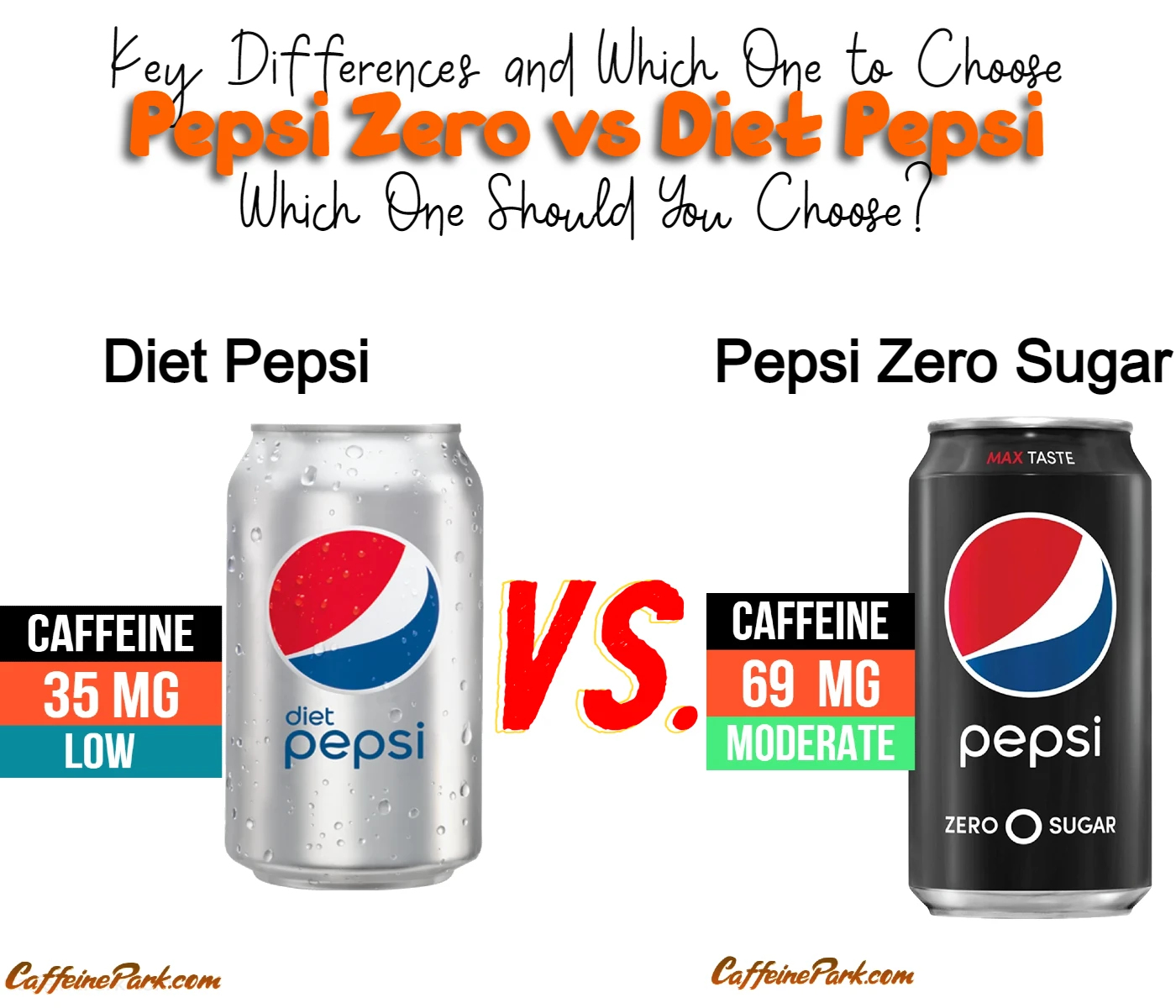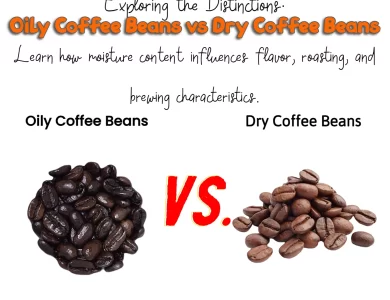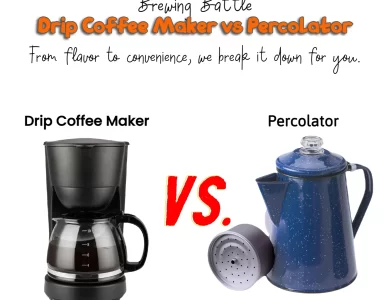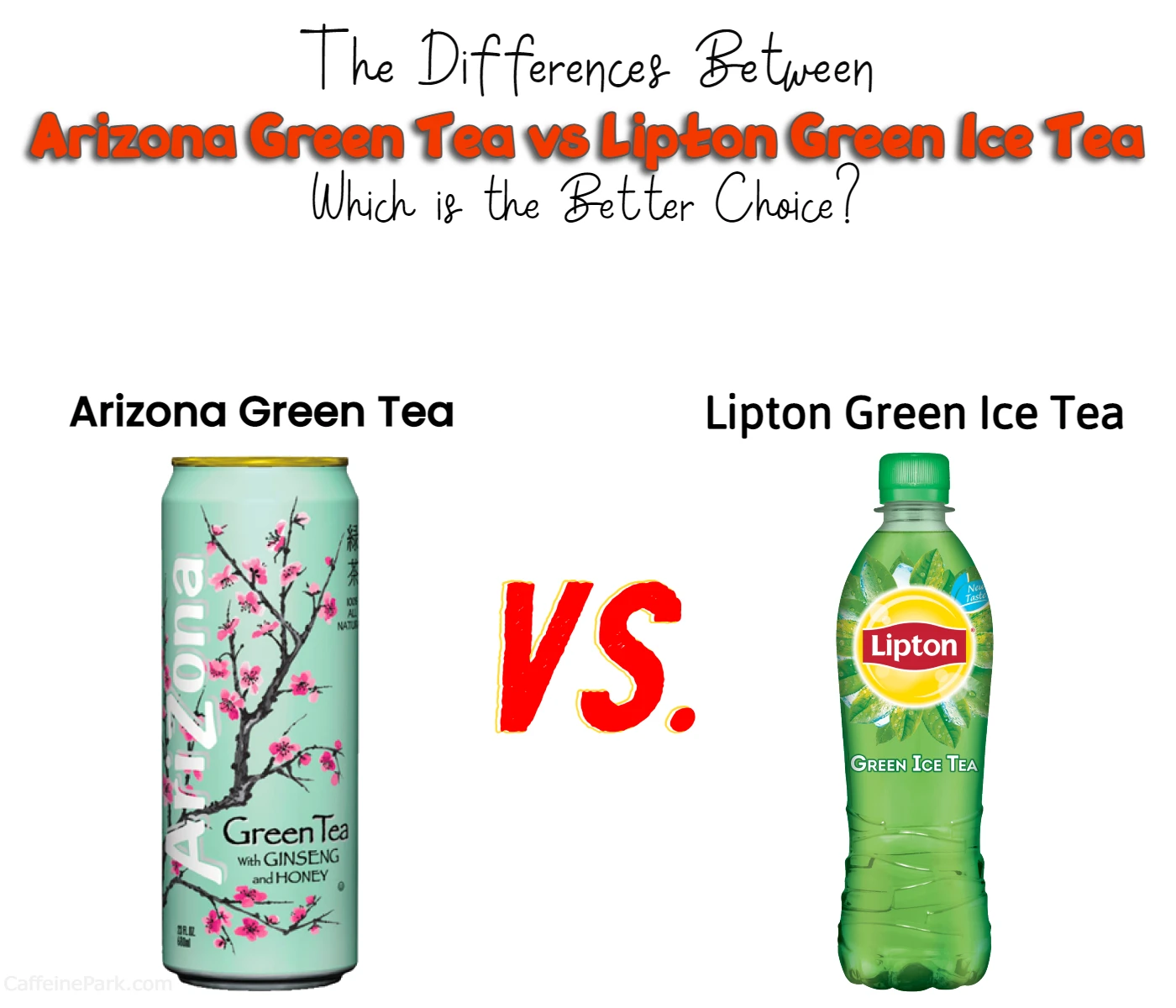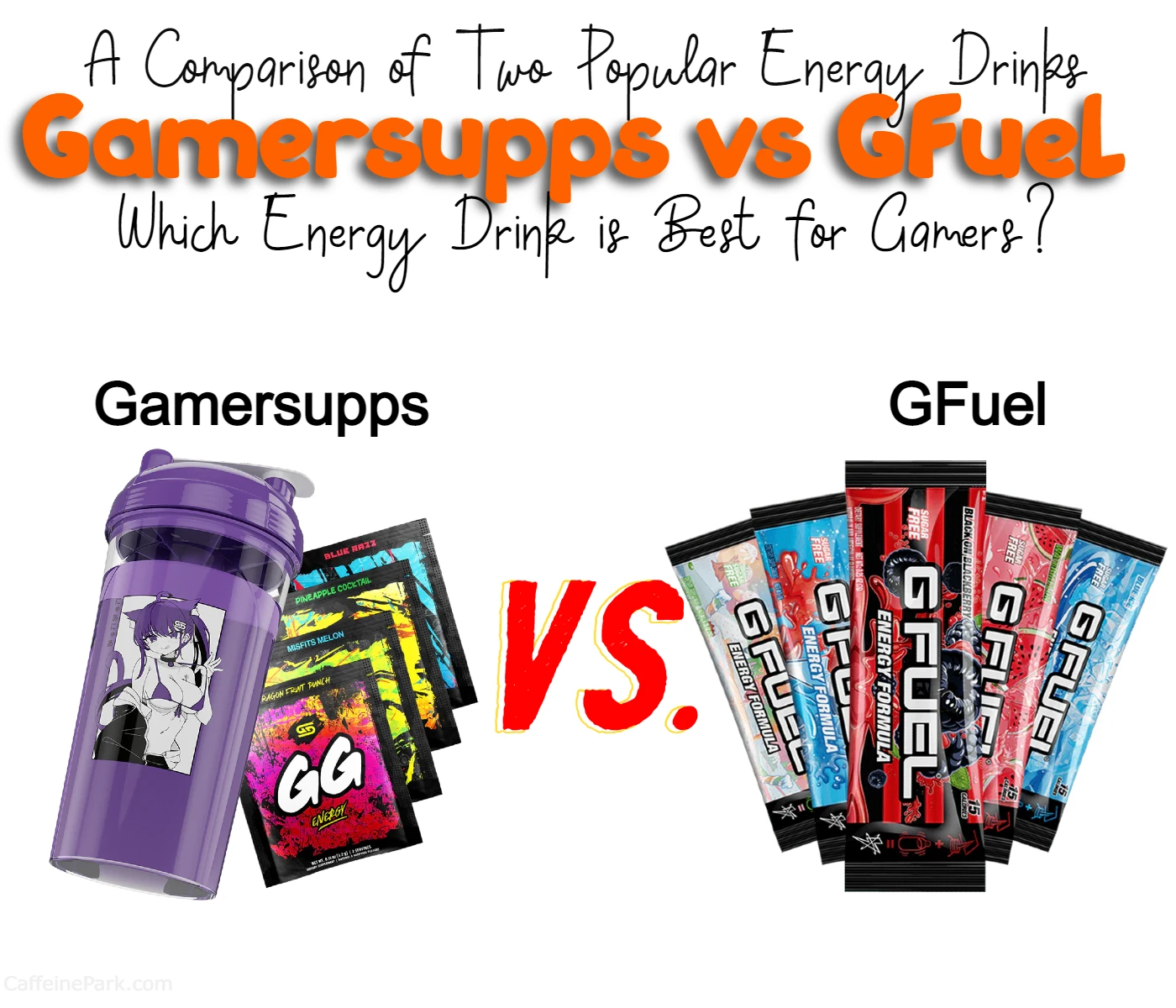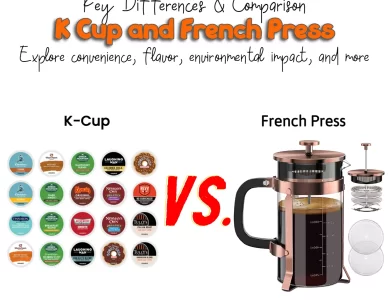Coca-Cola vs. Pepsi
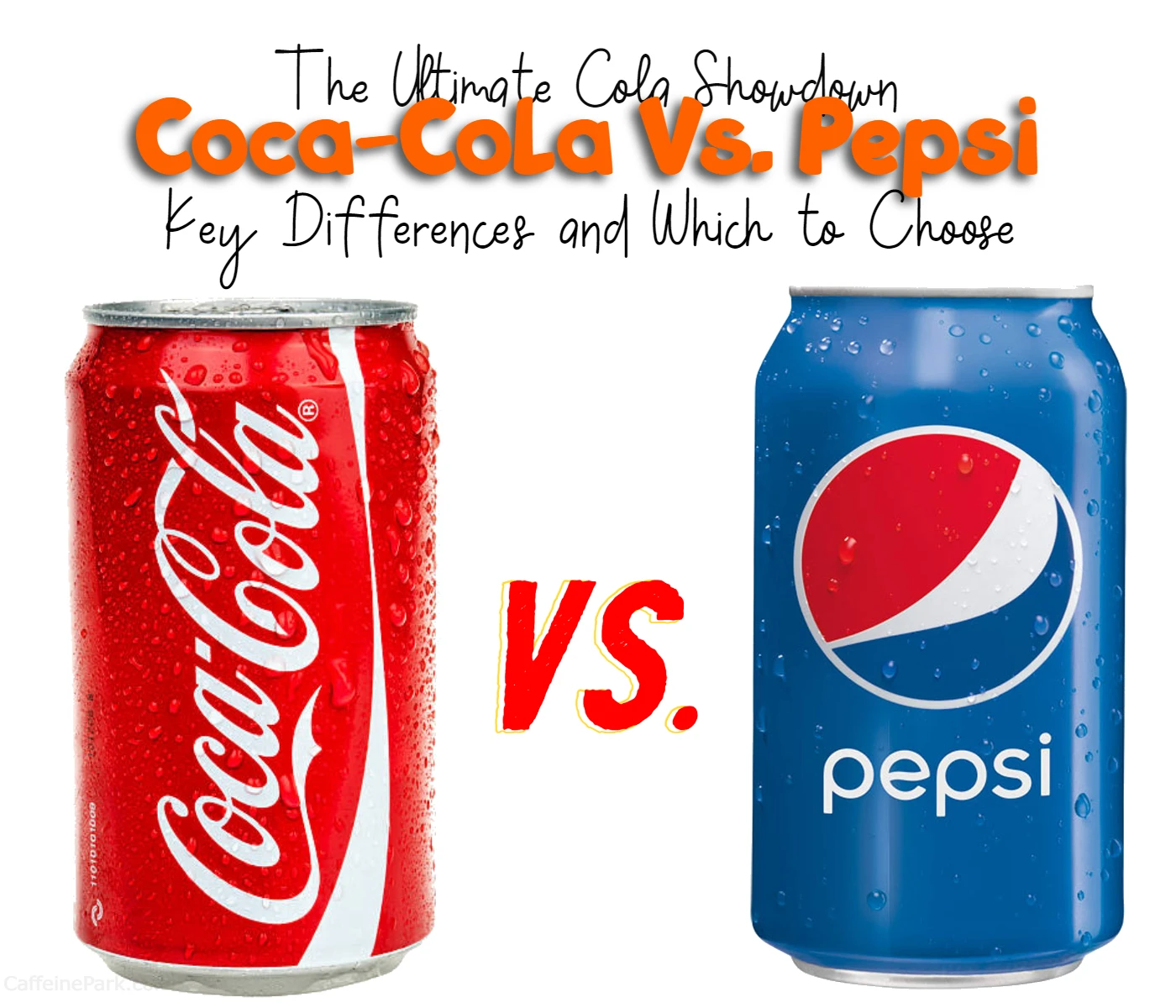
Welcome to my blog post all about the age-old rivalry between Coca-Cola and Pepsi! As two of the most well-known and beloved soda brands in the world, it’s no surprise that people have been debating which one is better for decades.
In this blog post, we’ll take a deep dive into the differences between Coke and Pepsi, from their histories and flavors to their nutritional information include caffeine content and cultural impact. We’ll explore the various marketing strategies employed by each brand, as well as their caffeine content and more.
Whether you’re a die-hard Coca-Cola fan, a staunch Pepsi loyalist, or simply someone who enjoys a refreshing soda from time to time, this blog post is for you. So grab a can of your favorite cola, sit back, and get ready to learn everything you ever wanted to know about the ongoing cola conundrum.
Difference Between Coca-Cola and Pepsi
Here’s a quick chart outlining some of the differences in taste between Coca-Cola and Pepsi:
| Coca-Cola | Pepsi | |
|---|---|---|
| Taste Description | Smoother, more caramel-like | Slightly sweeter, citrusy |
| Flavor Notes | Vanilla, cinnamon, caramel | Citrus, lemon, lime |
| Carbonation | Less intense, finer bubbles | More intense, larger bubbles |
| Aftertaste | Lingering, slightly bitter | Cleaner, less lingering |
| Caffeine content | 34 mg per 12 fl oz | 38 mg per 12 fl oz |
The main difference in taste between Coca-Cola and Pepsi lies in their flavor profiles. While both are cola-flavored sodas, they have slightly different taste profiles that can be attributed to their unique blend of ingredients.
Coca-Cola is often described as having a smoother, more caramel-like flavor. Its flavor notes include vanilla, cinnamon, and caramel, which give it a rich, slightly sweet taste with a hint of spice. Coca-Cola also has a less intense carbonation than Pepsi, with smaller bubbles that create a smoother texture.
On the other hand, Pepsi has a slightly sweeter, citrusy taste with flavor notes of lemon, lime, and citrus. Its carbonation is more intense than Coca-Cola, with larger bubbles that create a more effervescent mouthfeel. Some people also find that Pepsi has a cleaner, less lingering aftertaste than Coca-Cola.
Of course, taste is subjective and varies from person to person. Some people may prefer the smoother, more caramel-like taste of Coca-Cola, while others may prefer the slightly sweeter, more citrusy taste of Pepsi. Ultimately, the best way to determine which one you prefer is to try them both and see which one you enjoy more!
Introduction: A Tale of Two Colas
For decades, Coca-Cola and Pepsi have been locked in a battle for soft drink supremacy. Both brands have amassed loyal followings and their respective marketing campaigns have become pop culture touchstones. But when it comes down to it, which one is truly the king of cola?
History: The Origins of Coca-Cola and Pepsi
Coca-Cola has been around since 1886, when it was created by pharmacist John Pemberton in Atlanta, Georgia. Initially marketed as a tonic for a variety of ailments, Coca-Cola quickly became popular as a refreshing beverage. By the early 20th century, it had become a cultural phenomenon and a symbol of American culture.
Pepsi, on the other hand, was first introduced in 1893 by pharmacist Caleb Bradham in New Bern, North Carolina. Originally known as “Brad’s Drink,” it was renamed Pepsi-Cola in 1898 and marketed as a competitor to Coca-Cola. Despite initial setbacks, Pepsi became a major player in the soft drink industry by the mid-20th century.
Taste: A Matter of Preference
One of the most subjective aspects of the Coca-Cola vs. Pepsi debate is taste. Some people prefer the slightly sweeter taste of Pepsi, while others swear by the more classic flavor of Coca-Cola. It’s really a matter of personal preference.
That being said, there are some subtle differences between the two. Coca-Cola has a slightly more acidic taste, while Pepsi is known for its smooth finish. Coca-Cola also has a slightly stronger carbonation, which some people find to be more refreshing.
Marketing: Battle of the Brands
When it comes to marketing, Coca-Cola and Pepsi are two of the most iconic brands in the world. From classic ad campaigns like “I’d Like to Buy the World a Coke” to Pepsi’s legendary “Pepsi Challenge,” both brands have used advertising to create powerful emotional connections with consumers.
Coca-Cola has always emphasized the classic, timeless quality of its brand. Its advertising often features iconic images of Coca-Cola bottles and logos, and its messaging focuses on the idea of sharing and togetherness.
Pepsi, on the other hand, has often positioned itself as the more youthful, fun alternative to Coca-Cola. Its ads are often more irreverent and humorous, and the brand has always had a reputation for being on the cutting edge of pop culture.
Brand Loyalty: The Power of Nostalgia
When it comes to brand loyalty, both Coca-Cola and Pepsi have fiercely devoted followings. Many people have strong emotional connections to these brands, often based on childhood memories or cultural associations.
Coca-Cola’s classic red and white branding and iconic logo are instantly recognizable around the world. The brand has been featured in countless movies, TV shows, and songs, and its association with American culture is deeply ingrained.
Pepsi, meanwhile, has a more dynamic, ever-evolving image. The brand has often been associated with youth culture and pop music, and its marketing campaigns have frequently featured celebrities and musicians. This has helped the brand maintain a certain level of freshness and excitement over the years.
Diet Versions: A Battle of the Sweeteners
When it comes to diet versions of their flagship products, Coca-Cola and Pepsi have taken slightly different approaches. Coca-Cola Zero Sugar (formerly Coke Zero) was introduced in 2005 as a response to the popularity of Diet Coke. It is marketed as a more masculine, edgier version of Diet Coke and has become a popular choice among men.
Pepsi, on the other hand, introduced Diet Pepsi in 1964 as a low-calorie alternative to its regular cola. Over the years, the brand has also introduced other diet versions, including Pepsi Max and Pepsi Zero Sugar.
One of the key differences between the two brands’ diet offerings is the sweeteners used. Coca-Cola Zero Sugar is sweetened with aspartame and acesulfame potassium, while Diet Coke uses aspartame and acesulfame potassium as well as cyclamates. Meanwhile, Pepsi’s diet versions are sweetened with a combination of aspartame and acesulfame potassium.
Cultural Impact: A Global Phenomenon
Both Coca-Cola and Pepsi have had a significant cultural impact over the years, both in the United States and around the world. Coca-Cola, in particular, has become a symbol of American culture and capitalism, with its iconic branding and ubiquitous presence.
Pepsi, on the other hand, has often positioned itself as the more global, cosmopolitan alternative to Coca-Cola. Its advertising has frequently featured international celebrities and musicians, and the brand has made a concerted effort to appeal to a global audience.
Nutritional Information: A Look at the Facts
When it comes to nutritional information, both Coca-Cola and Pepsi are fairly similar. A 12-ounce can of Coca-Cola contains 140 calories and 39 grams of sugar, while the same size serving of Pepsi contains 150 calories and 41 grams of sugar.
Both brands also offer diet versions with zero or low calorie options, as well as various other flavors and varieties. However, it’s worth noting that many health experts recommend limiting or avoiding sugary drinks altogether due to their potential health risks.
Caffeine content
Another important aspect to consider when comparing Coca-Cola and Pepsi is their caffeine content. While both brands contain caffeine, the amount can vary depending on the specific product and serving size.
For example, a 12-ounce can of Coca-Cola contains 34 milligrams of caffeine, while the same size serving of Pepsi contains slightly more at 38 milligrams. However, some variations of each brand contain significantly more caffeine. For instance, a 16-ounce can of Monster Energy, which is owned by Coca-Cola, contains a whopping 160 milligrams of caffeine, while a 16-ounce can of PepsiCo’s Mountain Dew contains 54 milligrams.
It’s worth noting that excessive caffeine consumption can have negative health effects, including increased heart rate, anxiety, and insomnia. As such, it’s important for consumers to be aware of the caffeine content in their beverages and to consume them in moderation.
Conclusion: The Cola Conundrum
So, which one is better – Coca-Cola or Pepsi? The truth is, it’s a matter of personal preference. Both brands have their own unique histories, flavors, and marketing strategies, and both have amassed fiercely loyal followings over the years.
Ultimately, it’s up to each individual to decide which cola they prefer. Whether you’re a die-hard Coca-Cola fan or a staunch Pepsi loyalist, there’s no denying that both brands have had a significant impact on our culture and our taste buds.
FAQs
While both Coca-Cola and Pepsi are cola-flavored sodas, they have slightly different taste profiles. Coca-Cola is often described as having a smoother, more caramel-like flavor, while Pepsi has a slightly sweeter, citrusy taste.
In terms of worldwide popularity, Coca-Cola is the clear winner, with a market share of around 44% compared to Pepsi’s 31%. However, Pepsi has a stronger presence in certain regions, such as the Midwest and Southeastern United States.
Both Coca-Cola and Pepsi contain similar amounts of sugar and calories, and both offer diet versions with zero or low calorie options. However, it’s worth noting that many health experts recommend limiting or avoiding sugary drinks altogether due to their potential health risks.
While both brands contain caffeine, the amount can vary depending on the specific product and serving size. On average, Pepsi contains slightly more caffeine than Coca-Cola, but some variations of each brand contain significantly more caffeine than others.
Whether or not you can taste the difference between Coca-Cola and Pepsi is largely a matter of personal preference. While some people swear they can tell the difference between the two, others claim they taste virtually identical. Ultimately, it’s up to each individual to decide which one they prefer.
Read More:
